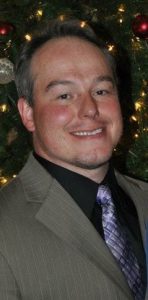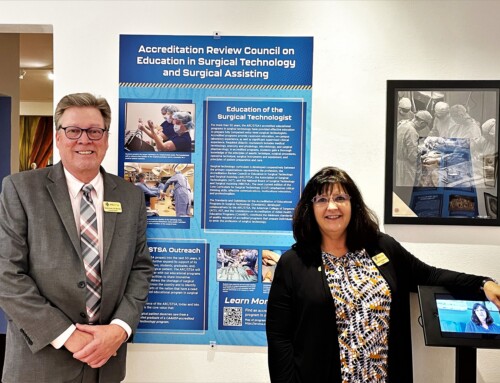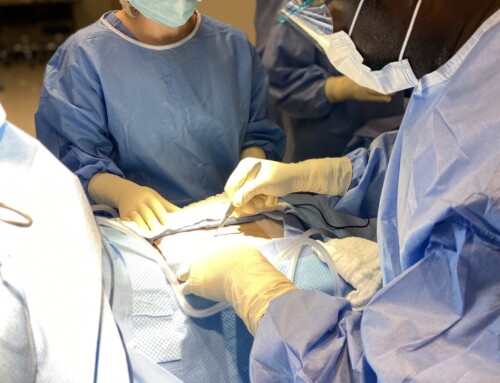By Tom Lescarbeau, Interim Dean of Health and Sciences, Lone Star College – Tomball
This journey may sound familiar to some, but each time I reflect upon it, I am amazed at the number of twists and turns. Barely old enough to buy scratch-off tickets, I learned to work alongside some of the most dedicated and passionate people on Earth as a surgical technologist. I didn’t really understand the magnitude of actually saving lives at that point. Naiveté was a blessing, I guess. My first full-time job was working at a rural hospital in Bennington, Vermont, making $7.50 an hour. The facility didn’t even have a job description for me. It astounds me to think about how far the profession has come since then.
Furthering my education did so much more for me than just developing the skills required to deliver safe patient care as a member of the surgical team. The critical thinking skills needed each and every day to work in the OR are not common. Then there’s the high degree of accountability and collaboration required for each case. It inspired me to look for opportunities to grow and give back to the profession. Serving as a state assembly officer helped with learning how to conduct meetings, apply Robert’s Rules, basic accounting, marketing, event planning, writing reports and even fundraising. To see five years of grassroots efforts in the legislative process was rewarding. These characteristics are pillars of what is needed to be an effective leader.
Transitioning from practitioner to educator was difficult. I can scrub a case and help remove a brain tumor, but understanding the intricacies of education was difficult. What are multiple intelligences? What are andragogy and pedagogy? How do you assess a skill and teach competency? How do you write a lesson plan? Accreditation standards were foreign to me. The fastest way I learned all this was to get a teaching degree in occupational education. It fostered a learning environment in which to grow with my students. It made me understand things much better than a degree in a related science could ever have done.
The people you surround yourself with also make an impact. Working on the NBSTSA Exam Item Writing and Exam Review committees taught me how to analyze meaningful data. Receiving training as a site visitor helped make my program better. Taking the skills learned from the classroom and using them to present at national conferences worked toward developing speaking skills. I am no longer nervous to address large crowds.
Finally, working under strong leadership helps develop good leadership practice. I have many people to thank, including Dr. Jayne MacPherson, president of MA State Assembly, and its directors, Michele Dodge and Kathy Sawtelle. I can also thank Ben Price, CEO of NBSTSA, and Dr. Cynthia Casparis, current ARC/STSA director. These people helped me develop valuable skills and realize my dreams of continuing my education and becoming an administrator.
All this to say, students and instructors need to understand their full potential about the skills they learn in the OR, the classroom and the profession in general. It can shape their future in more ways than one can imagine. I am grateful to be a part of this professional community.
 Thomas D. Lescarbeau is the interim dean of health and sciences at Lone Star College in Tomball, Texas. He is an educator and administrator who believes it is important to provide leadership and direction by working collaboratively with all stakeholders.
Thomas D. Lescarbeau is the interim dean of health and sciences at Lone Star College in Tomball, Texas. He is an educator and administrator who believes it is important to provide leadership and direction by working collaboratively with all stakeholders.



